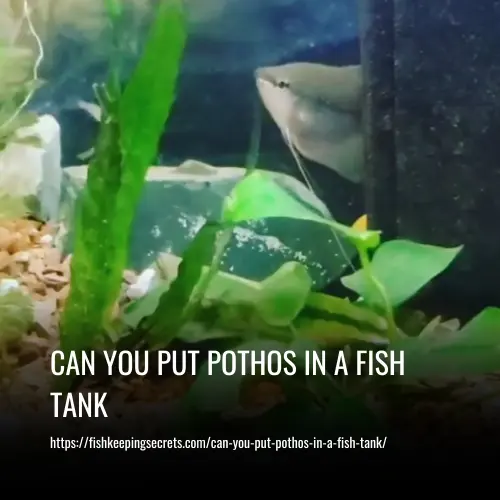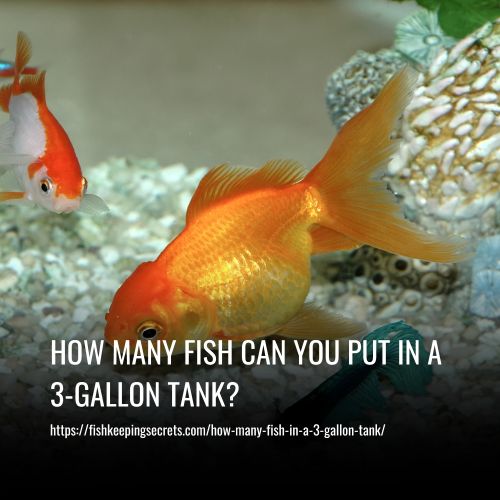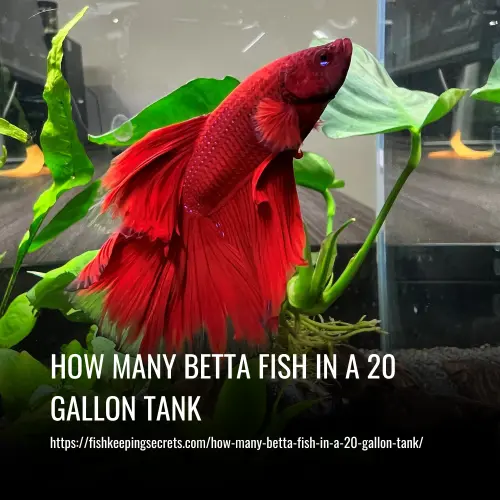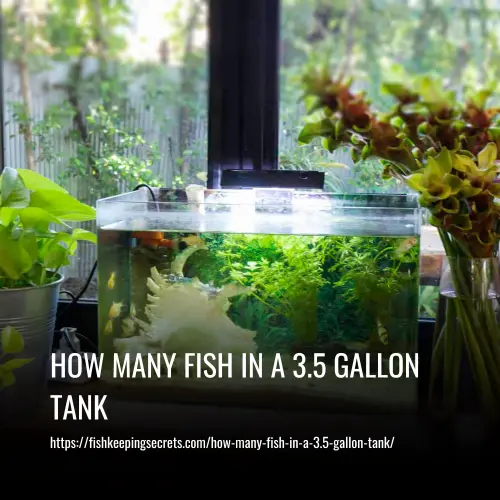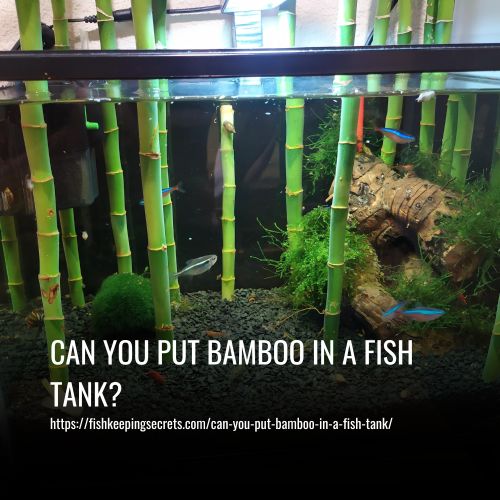Do Apartments Allow Fish Tanks
This post contains affiliate links. As an Amazon Associate, we earn from qualifying purchases.
Yes, apartments allow fish tanks as long as they are properly cared for and do not pose a risk to the property or other tenants. Owning a fish tank can be a calming and rewarding experience.
However, as a tenant, it’s essential to know the rules and regulations when it comes to having a fish tank in an apartment. Some landlords or property management may have certain restrictions on the size of the tank, the type of fish or aquatic animals, and the location of the tank within the unit.
It’s crucial to carefully read the lease agreement and speak with the landlord or property manager before purchasing a fish tank. Additionally, it’s essential to maintain the tank properly and ensure it does not cause damage to the property or disturb other tenants. With proper care and attention, owning a fish tank can be a enjoyable addition to an apartment.
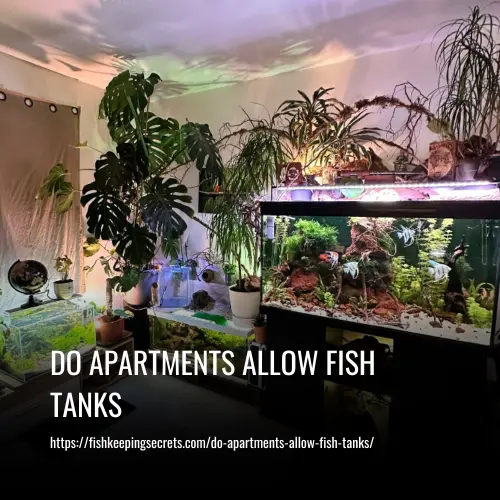
Fish Tank Size
Determining The Size Of The Tank
Fish make wonderful pets and can be a lovely addition to any home. If you’re considering adding a fish tank to your apartment, one of the first things you need to consider is the size of the tank. Here are some points that can help you determine the appropriate size for your fish tank:
- Consider the type and number of fish you plan to keep.
- Think about the space that you can comfortably accommodate in your apartment.
- Keep in mind that larger tanks have an advantage in maintaining stable water parameters for the fish.
Factors To Consider When Selecting The Size
Selecting the perfect size of a fish tank for your apartment can be challenging. Here are some factors to consider before making a choice:
- The number of fish – the more fish you plan to keep, the larger the tank you need.
- The type of fish – different species have varying space requirements.
- Budget – larger tanks are typically more expensive than smaller ones.
- Available space – consider how much space you have in your apartment to accommodate the fish tank.
The Ideal Size Of A Fish Tank For An Apartment
Choosing the ideal size of a fish tank largely depends on your space availability, personal preferences, and budget. In general, a 20-gallon fish tank is a great choice for an apartment. It is not too big for a small space and not too small for the fish.
Here are some of the advantages of a 20-gallon fish tank:
- It provides enough space for a beginner to learn how to take care of fish.
- It is an appropriate size for beginners to upgrade their skills and gain experience in keeping different types of fish.
- It is easier to maintain water parameters in a larger tank than in a smaller one.
It is important to take into account various factors before choosing the size of a fish tank for your apartment. A 20-gallon tank is an excellent choice for beginners and intermediate-level fish owners. Keep in mind that the happiness and well-being of the fish should always be the top priority.
Types Of Fish Tanks
Do you love fish, and are you considering getting an aquarium in your apartment? Whether you’re an experienced fish owner or are new to the hobby, it’s essential to know if apartments allow fish tanks. We will explore the types of fish tanks available and their requirements.
Let’s take a closer look.
1. Freshwater Vs. Saltwater Tanks
When it comes to fish tanks, you have two options: freshwater or saltwater. Each type of aquarium comes with its unique benefits and challenges. Here are some key points to consider:
- Freshwater tanks are easier to maintain and setup than saltwater tanks, making them the better choice for beginners.
- Freshwater fish are generally hardier than saltwater fish and less expensive.
- Saltwater tanks require higher levels of maintenance and equipment, making them more expensive to set up. However, they offer more variety in fish species and are more visually appealing.
2. Biotope Aquariums And Their Requirements
A biotope aquarium is a natural habitat aquarium. It is created to replicate a specific environment, including plants, fish, and water parameters. Here are the key points about biotope aquariums:
- It is essential to research the specific environment you want to replicate to ensure the plants and fish thrive.
- Biotope aquariums require specific water parameters, including temperature, ph, and hardness.
- Proper filtration is crucial in a biotope aquarium.
3. Plant-Centric Aquariums And Their Setup Requirements
Plant-centric aquariums are becoming increasingly popular among fish owners. These aquariums primarily focus on growing aquatic plants. Here are the key points to consider when setting up a plant-centric aquarium:
- Choose plants that are easy to maintain and low light.
- Proper lighting and substrate are essential for plant growth.
- Carbon dioxide (co2) is a necessary nutrient for plant growth and should be maintained at the right level.
Before setting up a fish tank in your apartment, make sure to check with your apartment complex’s policies. Consider the type of fish tank you want, whether it’s freshwater or saltwater, and select the appropriate system. If you wish to replicate a specific environment, biotope aquariums are the way to go, whereas plant-centric aquariums are for those who love aquatic plants.
Whatever type of fish tank you choose, ensure you maintain the necessary parameters to keep your fish and plants happy and healthy.
Fish Selection For Apartments
Are you considering adding a fish tank to your apartment décor? Before you rush into purchasing a new aquarium, you need to check if your apartment management allows fish tanks. Fortunately, most apartments allow fish tanks, but there may be specific regulations on the size, type, and quantity of fish.
In this blog post, we will discuss the key points you should consider before bringing a fish tank into your apartment, with a focus on fish selection.
Choosing Fish For Your Apartment
Selecting the fish for your apartment requires a thoughtful approach. Here are some things to keep in mind when choosing fish for your apartment:
- Consider the size of the fish: In most cases, apartments have limited space, which means you may not have an adequate area to install a large fish tank. Therefore, selecting small-sized fish that can comfortably fit inside an aquarium is a better option.
- Look for low maintenance fish: Some fish species require a high level of maintenance, such as frequent water changes, feeding, and tank-cleaning, which might not be practical in apartments. Low maintenance fish, such as bettas, guppies, and tetras, are great options for apartment living.
- Avoid aggressive fish: Aggressive fish can attack other fish or harm the fish tank plants, which can create an unpleasant atmosphere in your apartment. Consider peaceful fish such as neon tetras, mollies, and platies, that are well suited for apartment living.
Types Of Fish That Are Suitable For Apartment Living
Some fish species thrive in apartment settings and can provide a great visual experience for you and your guests. Here are some popular fish types that are suitable for apartment living:
- Betta fish: Also called siamese fighting fish, betta fish are an excellent option for apartment living. Known for their bright colors and flowing fins, bettas don’t require a large aquarium and are relatively low maintenance.
- Guppies: Guppies are colorful and small sized fish that are perfect for an apartment setting. They are easy to care for and a great way to introduce yourself to fish keeping.
- Neons: Neons are small-sized fish with bright blue and red stripes that can add a pop of color to your apartment. They thrive on a diet of flakes and are easy to take care of.
The Quantity Of Fish Per Gallon Of Water
Overcrowding your fish tank with too many fish can lead to health issues for your fish and poor water quality. It is essential to know the recommended gallon of water per fish to keep a healthy environment in your fish tank.
Here are some general recommendations to keep a healthy fish environment:
- 1 inch of fish per gallon of water: For small-sized fish, you need at least one gallon per inch of fish.
- Don’t overstock: It is essential not to overstock your tank, even if you have enough space. Aquariums require a stable environment, and adding too many fish abruptly can lead to stress and illnesses.
Before getting any fish, ensure to consider the apartment management’s policy on keeping fish. After ensuring that, it’s time to choose fish that are suitable for apartment living, low maintenance, non-aggressive, and small-sized. It’s also essential to consider the recommended gallon of water per fish to avoid overcrowding and keep a healthy environment in your fish tank.
Fish Tank Maintenance And Upkeep In Apartments
If you’re an apartment dweller, you may be wondering whether or not you’re allowed to keep a fish tank in your home. While there isn’t a straightforward answer to this question, the good news is that many apartments do allow fish tanks.
However, it’s important to keep in mind that owning fish requires regular maintenance. Here are some tips to help you keep your fish tank in great condition without any hassle.
Regular Maintenance Routines
Aquarium maintenance can feel overwhelming, but it doesn’t have to be. By following a few simple steps, you can keep your fishy friends happy and healthy.
- Test your water on a regular basis to ensure its quality. It’s important to keep the ph balance, temperature, and ammonia levels in your tank at a healthy level.
- Conduct weekly water changes. Regular water changes keep the tank environment clean and safe.
- Clean your tank’s filtration system at least once a month. Filters are vital in keeping your tank water clean, clear, and healthy.
- Remove any uneaten food or debris from the tank daily.
Common Mistakes Made By Beginners And How To Avoid Them
As a beginner, owning a fish tank can be a daunting task. Here are some common mistakes to avoid:
- Overfeeding your fish. Excess food rots in the tank, creating an unpleasant environment for your fish.
- Adding too many fish. Overcrowding can decrease the tank’s water quality and lead to fish stress or disease.
- Not cycling the tank before adding fish. Cycle your tank until the water’s ammonia level reaches zero, and nitrate levels are safe for fish.
Tips For Keeping Your Fish Tank Healthy In An Apartment Setting
Living in an apartment can present unique challenges when caring for a fish tank. Here are some tips to help maintain a healthy environment:
- Choose the right size tank for your space. Consider the tank’s weight and the strength of your flooring.
- Find a suitable location for your tank. Keep it away from direct sunlight, heat sources, and heavy traffic areas.
- Monitor your tank’s water temperature, as apartments can be prone to temperature fluctuations.
- Invest in a portable battery-powered aerator to maintain oxygen levels during power outages.
Overall, owning a fish tank in an apartment can be an enjoyable and rewarding experience. With a little bit of care and attention, your fish can thrive in their new home.
Fish Tank Accessories And Décor
Fish tanks are a popular means of decorating an apartment and brightening up the environment while reducing stress levels. However, one question many apartment dwellers have is if apartments allow fish tanks. The answer differs based on the apartment complex and its policies.
While some apartments permit fish tanks below a particular size, others have restrictions on fishbowl or a self-contained ecosystem. However, one aspect of maintaining a fish tank that cannot be ignored is the role of fish tank accessories and décor.
Importance Of Adding Accessories To Your Fish Tank
Fish tank accessories play a crucial role in creating a suitable habitat for your fish. Apart from aesthetics, it also enhances the life of the fish. Here are some essential reasons you should consider adding accessories to your fish tank:
- Hygiene: Fish tank accessories like filters help maintain hygiene levels by cleaning the water and removing debris.
- Oxygen supply: Accessories such as aerators and air pumps offer a steady supply of oxygen for your fish.
- Fish health: Some accessories like heaters help maintain a stable temperature, while others like rocks and hiding places provide a much-needed break for your fish.
Types Of Decor And Their Impact On Your Fish Tank
Fish tank décor has various impacts on the tank and its inhabitants. It can affect the fish’s mood, health and impact the overall aesthetic appeal of the aquarium. Below are some types of décor you may consider adding to your fish tank:
- Living plants: Live plants can enhance the beauty of a fish tank and also reduce stress levels for the fish.
- Artificial plants and decorations: Artificial plants and decorations are great for adding color and visual appeal to your fish tank. However, make sure to choose decorations that are fish-friendly, without sharp edges that can harm the fish.
- Substrate: Sand, gravel, or pebbles can create a visually appealing bed for some fish species. Make sure the substrate is cleaned thoroughly to prevent accumulation of debris, which can result in harmful bacterial growth.
How Much Décor Should You Add In Your Fish Tank?
One question many aquarium owners have is how much décor they should add to their tank. While fish tank décor is necessary for maintaining a healthy environment for your fish, too much of it can be detrimental. Here are some essential things to consider when selecting how much décor to add to your tank:
- Fish species: The number of fish in your tank, their size, and the species type you have will determine the required amount of space.
- Size of the tank: Although adding décor is visually appealing, it is also essential to allow your fish to swim freely and have ample space to move around. Consider getting a larger tank to avoid overcrowding in your tank.
- The type of decor: Be sure to select décor that provides the required amount of space and comfort for your fish. Avoid adding decorations that may harm or stress your fish.
Incorporating accessories and décor into your fish tank can enhance the beauty and comfort of the aquarium while giving your fish an ideal living space. When choosing décor, always consider the type, size, and number of fish you own and select décor that provides them with the required space and comfort to thrive.
FAQs
Yes, you can. Many apartments allow fish tanks as long as they are properly secured, don’t cause damage, and meet certain size limits.
Most apartments have a size limit on fish tanks, typically 20-50 gallons. However, the best size for an apartment fish tank is around 10-20 gallons.
Yes, you do. It’s important to check with your landlord or property manager to make sure you are allowed to have a fish tank in your apartment.
Yes, you can have any type of fish as long as they are suitable for the size of your tank. Some fish are more sensitive to water conditions and need more care.
Betta fish, guppies, tetras, and goldfish are ideal for apartment living. They are small, low-maintenance, and can thrive in a smaller tank.
Make sure your fish tank is level and on a sturdy surface that can support the weight. Use a strong and secure stand or mount the tank to the wall.
Conclusion
People passionate about having a fish tank in their apartment need to do their research beforehand. Every apartment complex has a different set of rules and regulations when it comes to keeping fish tanks. Thus, it’s critical to check with your landlord or property manager before bringing one home.
We also suggest considering the type and size of the fish tank, as well as the number and type of fish you intended to keep. Doing so will ensure you stay within the permitted guidelines, avoid problems with your lease, and have a happy and healthy aquatic environment.
Remember, owning a fish tank comes with responsibilities, so being an informed and responsible pet owner is the key to making sure that you and the fish live cohesively. With these essential tips in mind, you can have a successful aquarium in your apartment and enjoy your fish without any worries.

